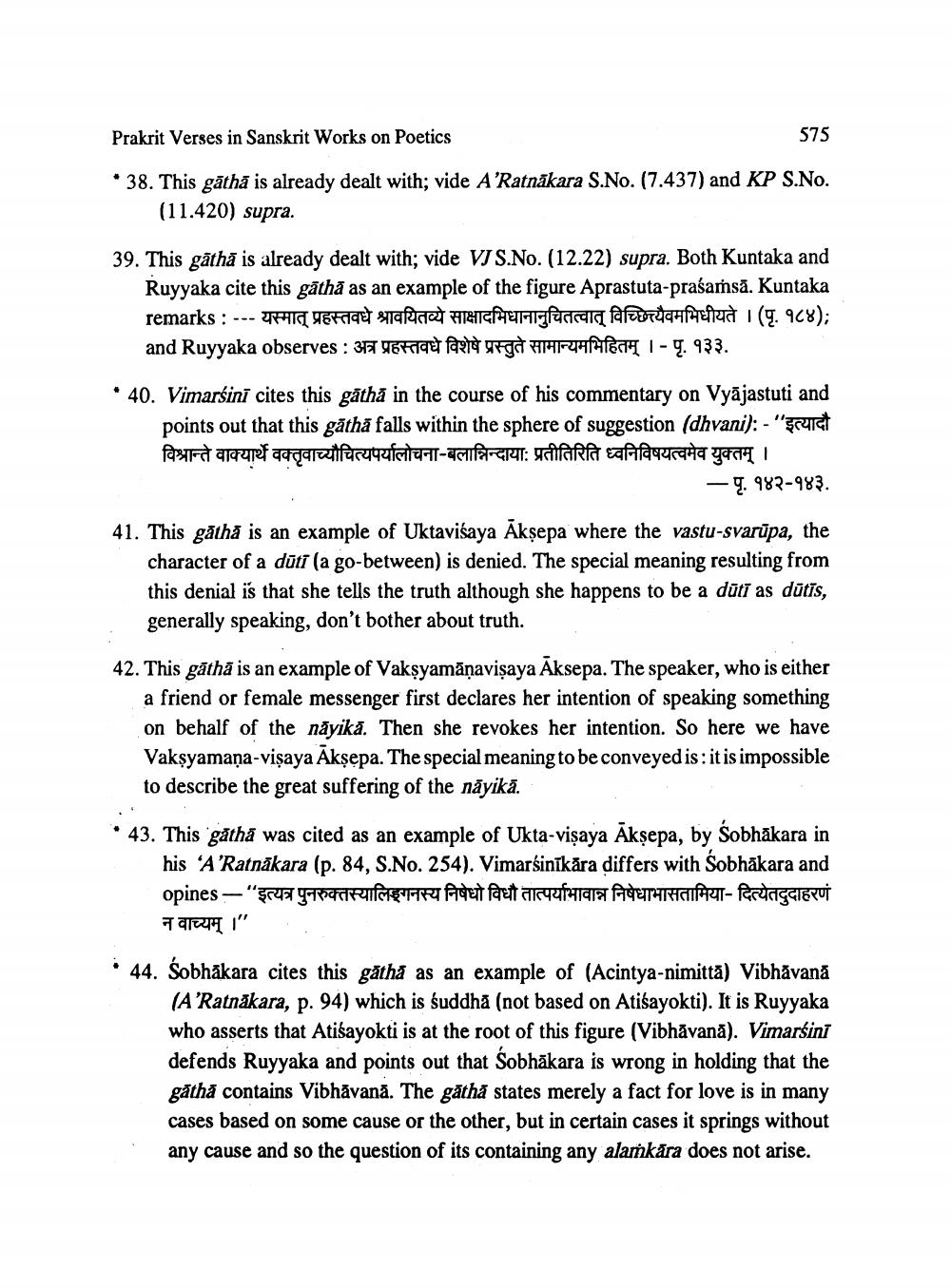________________
Prakrit Verses in Sanskrit Works on Poetics
575
* 38. This gāthā is already dealt with; vide A 'Ratnakara S.No. (7.437) and KP S.No.
(11.420) supra.
39. This gātha is already dealt with; vide VJ S.No. (12.22) supra. Both Kuntaka and
Ruyyaka cite this gāthā as an example of the figure Aprastuta-prašamsā. Kuntaka remarks: --- AIG EFt Taft HTATSHEFI facara falar ffyd i (.968); and Ruyyaka observes : 375 46tige fare urge arruiffah i- . 933.
* 40. Vimarsinī cites this gātha in the course of his commentary on Vyājastuti and
points out that this gātha falls within the sphere of suggestion (dhvani): - "Suit विश्रान्ते वाक्यार्थे वक्तृवाच्यौचित्यपर्यालोचना-बलान्निन्दाया: प्रतीतिरिति ध्वनिविषयत्वमेव युक्तम् ।
- 9. 987-983.
41. This gātha is an example of Uktaviśaya Aksepa where the vastu-svarūpa, the
character of a dūti (a go-between) is denied. The special meaning resulting from this denial is that she tells the truth although she happens to be a dūtī as dūtīs, generally speaking, don't bother about truth.
42. This gāthā is an example of Vaksyamāņavişaya Aksepa. The speaker, who is either
a friend or female messenger first declares her intention of speaking something on behalf of the nāyikā. Then she revokes her intention. So here we have Vakşyamaņa-vişaya Akşepa. The special meaning to be conveyed is: it is impossible to describe the great suffering of the näyikā.
* 43. This gātha was cited as an example of Ukta-vişaya Aksepa, by Sobhākara in
his 'A'Ratnākara (p. 84, S.No. 254). Vimarsinīkāra differs with Sobhākara and
opines -"इत्यत्र पुनरुक्तस्यालिगनस्य निषेधो विधौ तात्पर्याभावान्न निषेधाभासतामिया-दित्येतदुदाहरणं 71"
Sobhākara cites this gātha as an example of (Acintya-nimitta) Vibhāvanā (A 'Ratnakara, p. 94) which is suddhă (not based on Atiśayokti). It is Ruyyaka who asserts that Atiśayokti is at the root of this figure (Vibhāvanā). Vimarsini defends Ruyyaka and points out that Sobhākara is wrong in holding that the găthă contains Vibhāvanā. The gātha states merely a fact for love is in many cases based on some cause or the other, but in certain cases it springs without any cause and so the question of its containing any alamkāra does not arise.




